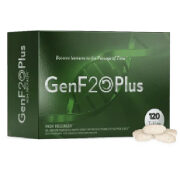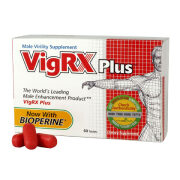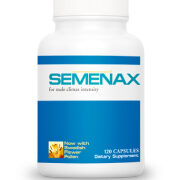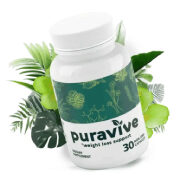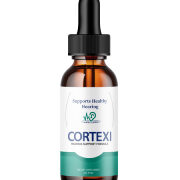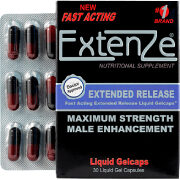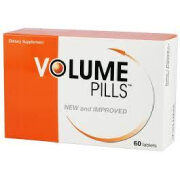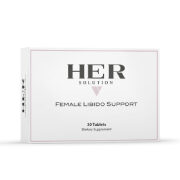Probiotics and Supplements
High Quality Vitamins and Supplements
Let'S Talk Dietary Supplements
Dietary supplements are everywhere and come in all sorts of forms. So, it can be tough to know what's good for you and what's not. Knowing what supplements will benefit your health and how much you need can often be overwhelming to figure out.
Dietary supplements provide nutrients to the body beyond what we get from food. While a healthy diet is important, it doesn't always provide enough nutritional value. Dietary supplements fill in the gaps in our nutrition. They make it easy to get all the vitamins and minerals you need to live healthily. There are dietary supplements formulated for men, women, and children, and even for different age groups.
This is a discussion about dietary supplements and how to know what's good for you. We'll look at what you need to know, some different types of supplements, and how to choose the right ones for your needs. So, keep reading for a good overview of dietary supplements.
Navigating the World of Dietary Supplements: What You Need to Know
The first thing to know about dietary supplements is there is a supplement for everything. That can make it hard to know what is best to take. So, you should start by doing a little research to look for the benefits you want.
Different supplements provide different benefits. For example, let's say you're looking for something to help with improving your joint health. Once you start looking, you'll see a lot of supplements targeted at joint health improvements have the word "move" within their titles. While they'll consist of a blend of ingredients, some of the common ones you'll find are eggshell membrane, collagen, and hyaluronic acid.
Once you've figured out what kind of dietary supplement you need, it's time to start looking at the companies offering them. You need to be mindful of the brand and company because some are more established and reputable than others. Look for online reviews. You can review the BBB website for acreditation. You can also look for physician backing of supplements. Generally, if a supplement has medical doctor support, you can trust it's good quality.
We'll look a little deeper into how to choose quality supplements a bit further down in this article. But first, let's move on to the science behind dietary supplements.
The Science Behind Dietary Supplements: What Research Says About Their Efficacy
According to the NIH, or the National Center for Complementary and Integrative Health, not all dietary supplements are effective. In fact, some may even be harmful rather than helpful.
That's not to say you need to be afraid of them. It just means you need to be aware and choose wisely from the wide array of supplements available on the market.
A lot of research has been done on the efficacy of supplements and there is still more to come.
One important thing to know is dietary supplements are different from herbal supplements. This is important because one is made from plants, fungi, and algae, which are all natural. The other contains at least one dietary ingredient but can be chock full of other unnatural filler substances, too.
Here is the definition of a dietary supplement, according to the federal government:
- Taken by mouth
- Must have at least one dietary ingredient - amino acids, enzymes, minerals, vitamins, herbs, botanicals, extracts of these, tissues from glands or organs
- Labeled as dietary supplements
- Intended to supplement diets
While there is a lot of research into how effective dietary supplements are, only some connections have been made between supplements and improved health. For instance, there is proof that melatonin helps with negating the effects of jet lag. However, gingko, which is believed by many to help with dementia and cognitive functionality, has not been proven to be effective.
Many factors affect the efficacy of dietary supplements. Supplements can interact negatively with prescribed or over-the-counter medications. That will decrease benefits in some cases. You should always talk to your doctor before starting a dietary supplement regimen when you take other medications to find out how they may interact.
Multivitamins are popular dietary supplements that many believe will help them live longer, healthier lives. Science has not proven this belief, however. While scientists don't believe there is any harm in taking multivitamins, they also have not connected this behavior with any extension of life.
That's not to say there's no benefit to these popular supplements. We just don't really know the extent of it.
From A to Zinc: Essential Nutrients and the Role of Supplements in Daily Nutrition
In this section, we're looking at some of the essential nutrients you've likely heard about and what they do for the body.
- Amaranth
Amaranth is a plant that has been used in medicines for a long time. It has properties thought to help increase good cholesterol and lower bad cholesterol. Humans have used it to treat ulcers, diarrhea, and reduce swelling.
- Calcium
Most of us know that calcium is important for strong, healthy bones. But did you know it could also help prevent cancer, heart disease, and high blood pressure. It's used to boost recovery in people after a heart attack, also. Calcium can prevent muscle cramps, too, including those felt during premenstrual syndrome.
- Holy Basil
This one is often used to fight off the common cold and the flu. It has anti-inflammatory properties that make it good for reducing the swelling in the nose, throat, and ears that make it feel like your head is going to pop when you have congestion in your head.
Holy basil is also used to lower blood sugar levels for people with diabetes. Diabetics often cook with holy basil as it helps them maintain good blood sugar levels and has a peppery taste that goes well in some Asian-inspired foods.
Holy basil can be taken through the mouth or you can apply it topically, too. It helps clear up ring worm when applied directly to the skin.
- Motherwort
Motherwort is thought to aid in getting better sleep. It's generally mixed with other ingredients, such as lemon balm, hops, and valerian. Sometimes it's used to help people who are having withdrawal symptoms to go to sleep.
There are several other beliefs out there about motherwort and its effectiveness. It's thought to help with menopausal symptoms, including hot flashes, emotional swings, and vaginal dryness. It may help to lower anxiety. Some even believe it helps to reduce blood loss from a C-section surgical birth. Itching, shingles, and even flatulence have been treated with motherwort.
It's good to keep in mind that most of these have not been extensively researched or proven. However, the belief comes from somewhere and someone who saw a difference in symptoms.
- Rosemary
Rosemary is an herb and is found in essential oil form. Many people cook with rosemary. It's fragrant and flavorful. But it also has some properties that make it good for your health.
One of the most common uses of rosemary is for the betterment of digestive health. It can help people who experience appetite loss. It also helps to reduce intestinal gas and heartburn.
People sometimes take rosemary to help regulate their blood pressure. It helps with both high and low blood pressures.
Other uses include things like increasing mental focus, reducing stress and anxiety, curing baldness, and boosting energy.
- Vitamin B12
This is a highly important nutrient. Your body needs vitamin B12 to work properly. We get B12 from foods. It's in meats, fish, and dairy.
Generally, dietary supplements with B12 in them are a combination of several B vitamins. Scientists produce synthetic B12 in laboratories so it's an easy supplement to find and it doesn't cost much.
Many people take B12 to increase mental focus and boost energy. It's taken by aging individuals who experience memory loss. It's also given to people with Alzheimer's to help slow the progression of the disease.
B12 is often an ingredient in the popular energy drinks that are sold all around the world.
- Zinc
From an essential vitamin to, now, an essential mineral. Zinc is an essential mineral, but one your body doesn't need a lot of. While we don't need a lot of zinc, we do need to take in zinc daily because our bodies do not store any of it. We can get it by eating poultry, fish, and red meat.
Zinc has a lot of benefits. One of its most well-known uses is to boost the immune system. Many people take zinc when it's cold season to help protect them from the germs spreading. It's also taken to lessen the length and severity of a cold.
Other uses include healthy growth development, treating respiratory infections, improving reproductive health, and decreasing the time to heal.
These are only seven of the hundreds of nutrients that can be supplemented in the body to better health. Remember, it's important to do some research on your own about the different nutrients you may take in a supplement but you also should speak to your medical doctor about any dietary supplement regimen you intend to begin.
Boosting Health or Wasting Money? Examining the Risks and Benefits of Dietary Supplements
The reality is, if you're spending money on dietary supplements, you want to know it's money well spent and it's benefiting your health the way you want it to. As long as you're researching the supplements you choose and vetting the companies manufacturing them, you likely are getting some benefits.
One of the biggest risks in taking dietary supplements is you could take too much. When you're doing your research, make sure you look up information on how much your body needs. Even if a dietary supplement has a lot of nutrients that are good for you, too much of them could be detrimental to your health.
Another risk to consider is taking dietary supplements with narcotics or other drugs. This can lead to bad interactions between the substances. Talk to your doctor before you start taking any dietary supplements along with your medications.
Dietary supplements have a lot of benefits. With the proper research and a carefully planned regimen, they can help you improve your health and even prevent ailments.
The Consumer's Dilemma: How to Make Informed Choices When Buying Dietary Supplements
Let's start with a note here about the regulations governing dietary supplements. They're not governed by the same rules as medications. Supplements are governed by rules founded by the DSHEA, or Dietary Supplement and Health Education Act. While they require manufacturers to use good manufacturing standards, there is nothing equivalent of an FDA-approval for dietary supplements.
Here's what you should look for. You can look for the letters, NSF or USP on the labels of dietary supplements. NSF stands for National Sanitation Foundation. USP stands for United States Pharmacopeia. Basically, if you see one of these abreviations on the supplement label, it means that particular supplement went through extra testing before it made it to retail shelves.
Expert Insights: What Nutritionists and Doctors Say About Dietary Supplements
Experts like doctors, nutritionists, and pharmacists do support the use of dietary supplements. That being said, they just caution people to be realistic with their expectations. Dietary supplements are not meant to cure any illness or disease. They don't prevent them, either.
These experts support some claims and have scientific evidence for many of them that dietary supplements can improve the health of people taking them correctly. There are health benefits but it remains that dietary supplements are not cures or medications.
Where to Buy Supplements in the USA
There are a plethora of places to buy dietary supplements in the USA. There are dedicated supplement shops, such as Vitamin Cottage and GNC. You can shop for them at The Vitamin Shoppe, as well.
Typically, all the large grocery store chains have dietary supplements for sale in the health and wellness part of the store. Popular retailers like Walmart, Target, Kroger, and Safeway all sell dietary supplements, too.
You can also order them online. Just be mindful of the brand and the seller to make sure you're getting a product from a reputable company.
Here's What It Comes Down To
Most of us feel our health is important. Dietary supplements can provide health benefits to help us be our best selves. There are supplements that can help to improve all sorts of different areas of our human health.
The trick is to understand that dietary supplements are meant to supplement nutrients that we may not be getting enough of in our diets. Do your research. Take the recommended amount only. And make sure to talk to your doctor or a pharmacist about the dietary supplement regimen you intend to start. Better health could be one supplement away.
Supplements
very selected wide range of natural supplements

